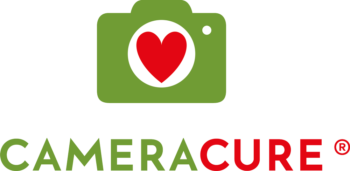Chapter 1. BEING: We increase our ability to be
Theme 1
Presence
The simplest way to waste one’s life is to let the moments pass by with- out noticing them. Our attention, which could be savouring the moment, is instead often occupied with hopes, dreams, memories, anxieties and worries. But the camera pulls us back into the here and now, the material we work with as photographers. Photography can develop our ability to be present.
From my position as a doctor I see the harmful effects of painful memories, depression and worries. Many people struggle with being pres- ent and, as a consequence of this, fail to make the most out of the moment. The good thing about paying attention is that our minds remain in the moment instead of fretting over the past or worrying about the future.
The camera is an instrument for aiding us in being present. It draws us into the moment and allows us to seize the precious time that we will never get back. The ability to concentrate and be present is a prerequisite for taking good pictures. As someone leading photography workshops, for me it is easy to see when a participant was rushed, distracted or overwhel- med by insecurity. This loss of presence leads to mediocre pictures. The best part of being a photographer is that the heightened sense of awa- reness we experience as we photograph lingers on even when we move around in our daily lives without the camera.
The exercises train your ability to appreciate the moment, the small experiences which seem so insignificant that they would have rushed by us without us noticing them if we hadn’t captured them with a camera. Focus on how lucky you are to observe and take care of the moment. Being grateful, finding a balance, accepting situations and noticing what is posi- tive is of course easier said than done. But from now on, the Camera Cure will help you to do what is easy to say.
BOOK SUGGESTION: The Tao of Photography by Philippe L. Gross

Photographer Dorothea Lange said the camera is an instrument that teaches people how to see without a camera. There is a lot of truth in that statement. If I had walked around Willemstad without a camera, I wouldn’t have had enough presence to notice an odd, charming, green wall. After some time, I also notice such things in my everyday life when I
am occupied with doing activities other than photography. This makes life richer. WILLEMSTAD, CURACAO, 2013. Photo: Torkil Færø
Habit 1
Training conscious presence
Get used to regularly stopping yourself and see what is right in front of you. Use your eyes as if you are looking at the very last thing you will ever see in life. That this is your final moment. What objects are there before you? Who might have made them? What color are they? What are the shapes of them like? What are the shadows like? Where does the light fall on them and where is the source of light? What do you feel when you look at them?
Look as if you have just arrived from another planet, from the jungle in the Amazon or from your great grandparents’ time. Study your sur- roundings with new eyes. Close your eyes and in your inner eye recreate the scene you have just seen. Afterwards open your eyes again. What did you miss?
Do this exercise several times a day at, for example, your office, in a waiting room or while you are in the bathroom. Look for what is unique in ordinary objects and surroundings. Most of the things our eyes rest upon every day would have been quite sensational to see for most people who lived before us. We have just gotten used to it. This fast adaptation to circumstances is useful in an evolutionary sense. As we spend less atten- tion on what is familiar, we are more ready to react to a sudden change or challenge. Our problem is that the dull complacency makes us less happy and satisfied.
Our sense of sight is an extreme privilege that we easily take for grant- ed all the way up to when we lose it. By doing this exercise, you will be able to take more control of your daily experiences and sensations.
BOOK SUGGESTION: Mindfulness for Beginners by Jon Kabat-Zinn

